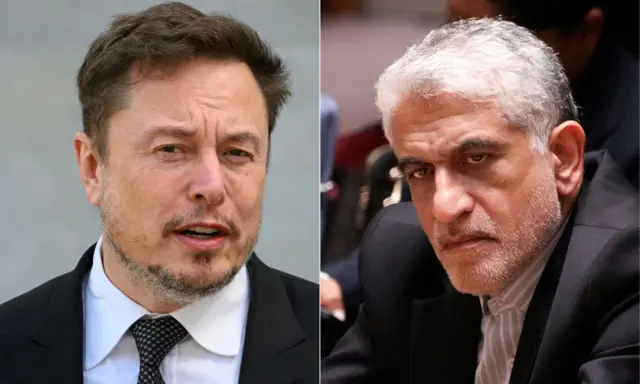Musk’s Meeting with Iravani: Neither Ignored Nor Overemphasized
WANA (Nov 16) – Iran, having navigated decades of challenges, no longer shapes its policies under American threats nor places undue significance on meetings of this nature. Iranian public opinion and the economic market have matured, responding to such news with pragmatism rather than emotional excitement.
Some experts argue that if Iran intends to engage in negotiations with Trump and his incoming administration, it must act within the next two months before Trump assumes office. The U.S. system operates in a way that many critical decisions and plans are formulated during this transitional period.
All indications suggest that the administration of Dr. Pezeshkian has no intention of escalating tensions or engaging in confrontation with the U.S. However, it also harbors no trust in Trump.

Iran, Trump, and His Team!
WANA (Nov 08) – More important than Trump himself is the team he appoints at the top of the State Department, Department of Defense, CIA, and National Security Council. This time around, Trump is selecting individuals who, unlike in his first term, are loyal to him and committed to his decisions. When it comes […]
The extensive military aid provided by the U.S. to Israel, enabling the massacre of innocent women, children, and civilians in Gaza and Lebanon, has further complicated the state of Iran-U.S. relations.
Iran’s reformist faction, despite its historical affinity for the West and particularly the U.S., regards Trump as a “madman” with “psychological disorders” and views him as untrustworthy. They believe that Trump’s withdrawal from the JCPOA (Iran nuclear deal) is partially responsible for their declining popularity domestically.

Trump’s Return: With More or Less Malevolence?
WANA (Nov 10) – On the third day of his presidency, John Adams, America’s second president and the founder of the White House, wrote to his wife: “May only honest and wise men ever rule under this roof… and may they herald peace and friendship.” Adams could hardly have imagined that future American presidents […]
Nevertheless, both the Iranian government and its diplomatic apparatus, as well as the Iranian public, seek tangible opportunities to mend Tehran-Washington relations—not merely on paper but through concrete actions.
Details of the meeting and discussions between Elon Musk and Iran’s representative to the UN, Amir Saeid Iravani, remain unclear. Tehran has previously engaged in direct, high-level talks with U.S. officials, even at the ministerial level.

Claim of an Attempted Assassination on Trump and Aggressive Policies Towards Iran
WANA (Nov 12) – Is the new American accusation against Iran simply another tactic to bolster its influence in the region, or is it part of a more complex scenario? This question occupies the minds of many political analysts and ordinary people today. In the latest accusation, the U.S. Department of Justice claims that […]
However, the core issue remains: the U.S. has never approached negotiations with Iran with the intent to improve relations. Instead, its goal has been to better understand Tehran’s leadership and inflict greater harm—something that Iran’s Supreme Leader, Ayatollah Khamenei, has long recognized. Consequently, Iran now refuses to engage in talks without securing immediate, tangible benefits, rejecting promises of future rewards.
Iranians understand that amidst rising global Muslim resentment toward the U.S. due to its direct support for atrocities in Gaza and Lebanon, hastily normalizing relations with Washington would be ill-advised. More importantly, given the unreliability of Western leaders—who easily abandon formal commitments, as seen in past agreements—Iranian officials see little reason to trust the words or promises of figures like Elon Musk.












